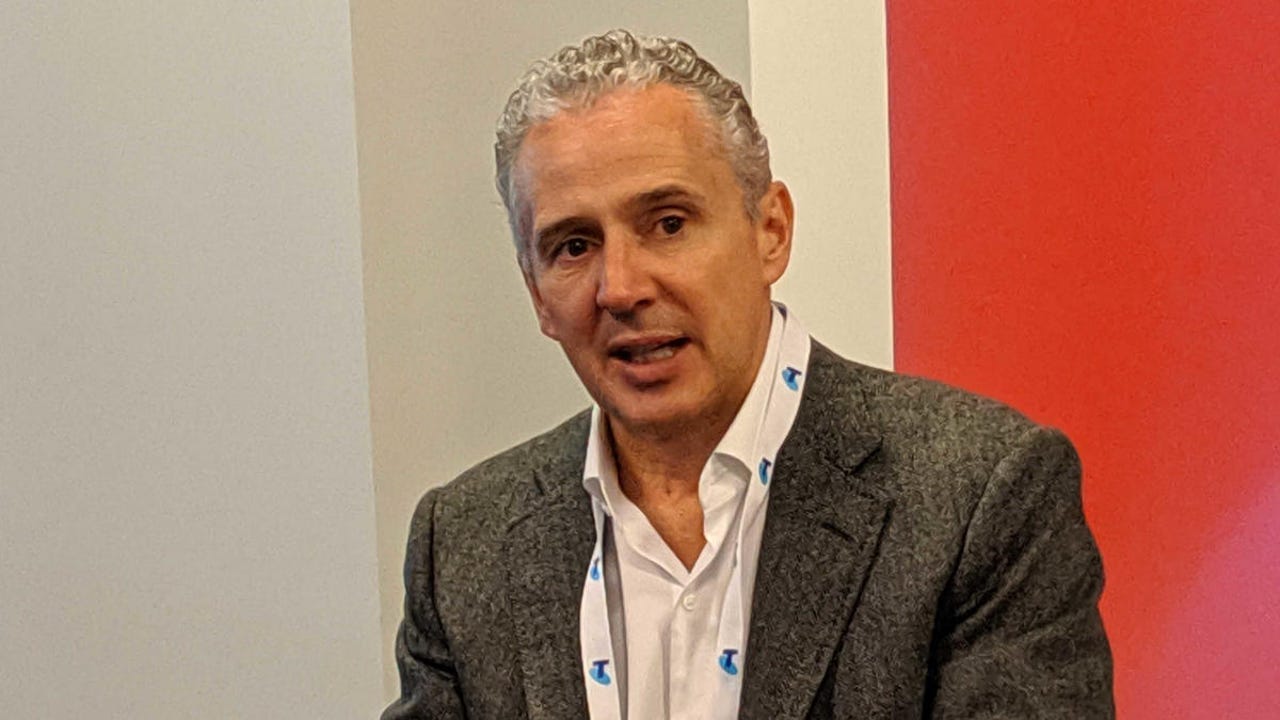Telstra CEO Andy Penn says he's open to job sharing

Upon reflecting on how the coronavirus pandemic has changed the way of working, Telstra boss Andy Penn has said he is open to job sharing.
"I'm up for it if anyone wants to volunteer," he said, speaking on a panel during an online event on Thursday.
"I think we should open our minds to some of these ideas because it is a pretty demanding job … all of us have got our strengths and weaknesses so if you can build a more complete leadership capability, such as through job sharing, yeah, why not?"
The telco executive, who is based in Melbourne and currently back in lockdown, also spoke candidly about how it has been nearly six months since he has been in the office.
"Before COVID, I endeavoured to work one day a month from home … so it's been a dramatic change for me on a personal level," he said.
"The sorts of things I miss are the informal interactions, the opportunities to bump into people in the coffee shop or in the lift, or the side conversations before a meeting or after a meeting. I definitely miss some of that."
See also: Coronavirus response sees Telstra pause job cuts for six months
Penn highlighted how one of the advantages Telstra had when it transitioned staff to remote working was, prior to the pandemic, staff were already working 1.7 days on average a week from home. He pointed out that this new way of working would likely continue even when it's safe to return to the office, estimating people are likely to work on average three days a week from home.
"I do believe I think we'll see more hub and bespoke type models and people wanting to take advantage of perhaps living more regional than CBD," he said.
"We were already quite a long way through that. We've been reworking our CBD accommodation over the last four to five years where we've been reducing 15% [of office] capacity … and we'll see a continuation of that trend."
He also noted changes to the legal framework would need to be made to support these flexible working arrangements.
"Most people work 36.7 hours a week, they have to do that between 7am and 7pm. If they work outside of those times, then it's overtime. Even with our relatively simple IR (industrial relations) framework, there's some constraints and parameters that don't support that flexibility, so we do have to move in that direction," he said.
Read more: Long-term remote work is leading to a global drop in productivity (TechRepublic)
BHP chief people officer Athalie Williams, who was also a part of the panel discussion on Thursday, agreed. She highlighted how the flexibility being offered to employees as part of the company's operation services workforce currently does not match with the existing legislative framework.
"Operation services is a new workforce for us and they provide maintenance and productions across our sites in WA, NSW, and Queensland. We've been inundated since we set up this workforce … we've now got 3,000 people in-field," Williams said.
"Operation services offers a different value proposition to our employees. It gives people much greater choice: They have flexibility in where they live, they have flexibility on the rosters they work, they have flexibility in the amount they want to work in any given year … and it gives us flexibility because we can use this workforce in a far more agile way.
"What we're also seeing as we replace our contractors with our operation services workforce, we're getting better safety outcomes, better productivity, and better efficient outcomes … the challenge is as we move through the enterprise agreement, it's really difficult.
"We find that we're running into a legislative framework that is not set up to provide the level of flexibility that we're seeing now."
More remote working news
- Hydro Tasmania overhauls legacy IT and moves 1,400 staff to remote work
- Auckland researchers find mixed feelings toward working from home
- APAC employees not fully secure to work from home
- COVID has shown Australian broadband can handle working from home: Dept of Comms
- NextDC says COVID-19 is upping Australian data centre needs
- ATO provides staff with Dell and HP kit to work remotely
